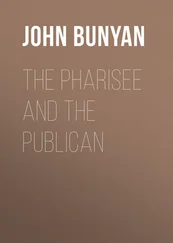John Bunyan - The Jerusalem Sinner Saved; or, Good News for the Vilest of Men
Здесь есть возможность читать онлайн «John Bunyan - The Jerusalem Sinner Saved; or, Good News for the Vilest of Men» — ознакомительный отрывок электронной книги совершенно бесплатно, а после прочтения отрывка купить полную версию. В некоторых случаях можно слушать аудио, скачать через торрент в формате fb2 и присутствует краткое содержание. Жанр: foreign_prose, Религиозная литература, foreign_religion, foreign_antique, на английском языке. Описание произведения, (предисловие) а так же отзывы посетителей доступны на портале библиотеки ЛибКат.
- Название:The Jerusalem Sinner Saved; or, Good News for the Vilest of Men
- Автор:
- Жанр:
- Год:неизвестен
- ISBN:нет данных
- Рейтинг книги:5 / 5. Голосов: 1
-
Избранное:Добавить в избранное
- Отзывы:
-
Ваша оценка:
- 100
- 1
- 2
- 3
- 4
- 5
The Jerusalem Sinner Saved; or, Good News for the Vilest of Men: краткое содержание, описание и аннотация
Предлагаем к чтению аннотацию, описание, краткое содержание или предисловие (зависит от того, что написал сам автор книги «The Jerusalem Sinner Saved; or, Good News for the Vilest of Men»). Если вы не нашли необходимую информацию о книге — напишите в комментариях, мы постараемся отыскать её.
The Jerusalem Sinner Saved; or, Good News for the Vilest of Men — читать онлайн ознакомительный отрывок
Ниже представлен текст книги, разбитый по страницам. Система сохранения места последней прочитанной страницы, позволяет с удобством читать онлайн бесплатно книгу «The Jerusalem Sinner Saved; or, Good News for the Vilest of Men», без необходимости каждый раз заново искать на чём Вы остановились. Поставьте закладку, и сможете в любой момент перейти на страницу, на которой закончили чтение.
Интервал:
Закладка:
I shall now proceed, and shall show you,
1. The reasons of the point:
2. And then make some application of the whole.
The observation, you know, is this: Jesus Christ would have mercy offered, in the first place, to the biggest sinners, to the Jerusalem sinners: “Preach repentance, and remission of sins, in my name, among all nations, beginning at Jerusalem.”
The reasons of the point are:
First, Because the biggest sinners have most need thereof. He that has most need, reason says, should be helped first. I mean, when a helping hand is offered, and now it is: for the gospel of the grace of God is sent to help the world; Acts xvi. 9. But the biggest sinner has most need. Therefore, in reason, when mercy is sent down from heaven to men, the worst of men should have the first offer of it. “Begin at Jerusalem.” This is the reason which the Lord Christ himself renders, why in his lifetime he left the best, and turned him to the worst; why he sat so loose from the righteous, and stuck so close to the wicked. “The whole,” saith he, “have no need of the physician, but the sick. I came not to call the righteous, but sinners to repentance;” Mark ii. 15–47.
Above you read, that the scribes and pharisees said to his disciples, “How is it that he eateth and drinketh with publicans and sinners?” Alas! they did not know the reason: but the Lord renders them one, and such an one as is both natural and cogent, saying, These have need, most need. Their great necessity requires that I should be most friendly, and show my grace first to them.
Not that the other were sinless, and so had no need of a Saviour; but the publicans and their companions were the biggest sinners; they were, as to view, worse than the scribes; and therefore in reason should be helped first, because they had most need of a Saviour.
Men that are at the point to die have more need of the physician than they that are but now and then troubled with an heart-fainting qualm. The publicans and sinners were, as it were, in the mouth of death; death was swallowing of them down: and therefore the Lord Jesus receives them first, offers them mercy first. “The whole have no need of the physician, but the sick. I came not to call the righteous, but sinners to repentance.” The sick, as I said, is the biggest sinner, whether he sees his disease or not. He is stained from head to foot, from heart to life and conversation. This man, in every man’s judgment, has the most need of mercy. There is nothing attends him from bed to board, and from board to bed again, but the visible characters, and obvious symptoms, of eternal damnation. This therefore is the man that has need, most need; and therefore in reason should be helped in the first place. Thus it was with the people concerned in the text, they were the worst of sinners, Jerusalem sinners, sinners of the biggest size; and therefore such as had the greatest need; wherefore they must have mercy offered to them, before it be offered any where else in the world. “Begin at Jerusalem,” offer mercy first to a Jerusalem sinner. This man has most need, he is farthest from God, nearest to hell, and so one that has most need. This man’s sins are in number the most, in cry the loudest, in weight the heaviest, and consequently will sink him soonest: wherefore he has most need of mercy. This man is shut up in Satan’s hand, fastest bound in the cords of his sins: one that justice is whetting his sword to cut off; and therefore has most need, not only of mercy, but that it should be extended to him in the first place.
But a little further to show you the true nature of this reason, to wit, That Jesus Christ would have mercy offered, in the first place, to the biggest sinners.
First, Mercy ariseth from the bowels and compassion, from pity, and from a feeling of the condition of those in misery. “In his love, and in his pity, he saveth us.” And again, “The Lord is pitiful, very pitiful, and of great mercy;” Isa. lxiii. 9; James v. 11.
Now, where pity and compassion is, there is yearning of bowels; and where there is that, there is a readiness to help. And, I say again, the more deplorable and dreadful the condition is, the more directly doth bowels and compassion turn themselves to such, and offer help and deliverance. All this flows from our first scripture proof; I came to call them that have need; to call them first, while the rest look on and murmur.
“How shall I give thee up, Ephraim?” Ephraim was a revolter from God, a man that had given himself up to devilism: a company of men, the ten tribes, that worshipped devils, while Judah kept with his God. “But how shall I give thee up, Ephraim? How shall I deliver thee, Israel? How shall I make thee as Admah? How shall I set thee as Zeboim? (and yet thou art worse than they: nor has Samaria committed half thy sins); Ezek. xvi. 46–51. My heart is turned within me, and my repentings are kindled together;” Hos. xi. 8.
But where do you find that ever the Lord did thus yearn in his bowels for and after any self-righteous man? No, no; they are the publicans and harlots, idolaters and Jerusalem sinners, for whom his bowels thus yearn and tumble about within him: for, alas! poor worms, they have most need of mercy.
Had not the good Samaritan more compassion for that man that fell among thieves (though that fall was occasioned by his going from the place where they worshipped God, to Jericho, the cursed city) than we read he had for any other besides? His wine was for him, his oil was for him, his beast for him; his penny, his care, and his swaddling bands for him; for alas! wretch, he had most need; Luke x. 30–35.
Zaccheus the publican, the chief of the publicans, one that had made himself the richer by wronging of others; the Lord at that time singled him out from all the rest of his brother publicans, and that in the face of many Pharisees, and proclaimed in the audience of them all, that that day salvation was come to his house; Luke xix. 1–8.
The woman also that had been bound down by Satan for eighteen years together, his compassions putting him upon it, he loosed her, though those that stood by snarled at him for so doing; Luke xiii. 11–13,
And why the woman of Sarepta, and why Naaman the Syrian, rather than widows and lepers in Israel, but because their conditions were more deplorable, (for that) they were most forlorn, and farthest from help; Luke iv. 25, 27.
But I say, why all these, thus named? why have we not a catalogue of some holy men that were so in their own eyes, and in the judgment of the world? Alas if at any time any of them are mentioned, how seemingly coldly doth the record of scripture present them to us? Nicodemus, a night professor, and Simon the pharisee, with his fifty pence; and their great ignorance of the methods of grace, we have now and then touched upon.
Mercy seems to be out of his proper channel, when it deals with self-righteous men; but then it runs with a full stream when it extends itself to the biggest sinners. As God’s mercy is not regulated by man’s goodness, nor obtained by man’s worthiness; so not much set out by saving of any such. But more of this anon.
And here let me ask my reader a question: suppose that as thou art walking by some pond side, thou shouldst espy in it four or five children all in danger of drowning, and one in more danger than all the rest, judge which has most need to be helped out first? I know thou wilt say, he that is nearest drowning. Why, this is the case; the bigger sinner, the nearer drowning; therefore the bigger sinner the more need of mercy; yea, of help by mercy in the first place. And to this our text agrees, when it saith, “Beginning at Jerusalem.” Let the Jerusalem sinner, says Christ, have the first offer, the first invitation, the first tender of my grace and mercy, for he is the biggest sinner, and so has most need thereof.
Читать дальшеИнтервал:
Закладка:
Похожие книги на «The Jerusalem Sinner Saved; or, Good News for the Vilest of Men»
Представляем Вашему вниманию похожие книги на «The Jerusalem Sinner Saved; or, Good News for the Vilest of Men» списком для выбора. Мы отобрали схожую по названию и смыслу литературу в надежде предоставить читателям больше вариантов отыскать новые, интересные, ещё непрочитанные произведения.
Обсуждение, отзывы о книге «The Jerusalem Sinner Saved; or, Good News for the Vilest of Men» и просто собственные мнения читателей. Оставьте ваши комментарии, напишите, что Вы думаете о произведении, его смысле или главных героях. Укажите что конкретно понравилось, а что нет, и почему Вы так считаете.












